Introduction to the Importance of Off-Page SEO in the Digital World
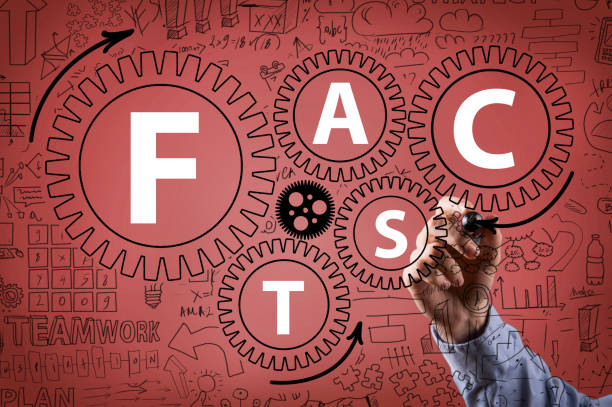
Off-Page SEO is a set of techniques and activities you perform outside your website to increase your website’s domain authority in the eyes of search engines.
This type of optimization is a vital part of a comprehensive SEO strategy and plays a significant role in determining your site’s ranking in search results.
While On-Page SEO deals with optimizing elements within the website such as content, keywords, and URL structure, #Off_Page_SEO focuses on factors that send signals to search engines about your site’s credibility, popularity, and trustworthiness.
These signals are primarily exchanged through Backlinks, or links from other sites to your site.
The more high-quality and relevant links you receive from reputable sites, the higher your site’s credibility in Google’s eyes, leading to an improvement in your ranking.
The importance of Off-Page SEO is not limited to ranking improvement; it also helps attract more organic traffic, increase Brand Awareness, and ultimately grow your business.
When your site ranks high in search results, more users see it and trust it.
This trust, over time, leads to increased brand recognition and more direct traffic.
Imagine having a website with excellent content and optimized internally, but no one knows about it.
This is where Off-Page SEO comes in, acting as a bridge connecting your valuable content to the target audience.
Various techniques exist for implementing this part of SEO, including link building, social media activity, participation in forums, and even brand mentions without direct links.
In today’s competitive world, ignoring Off-Page SEO means losing a significant competitive advantage.
Competitors are constantly striving to improve their domain authority, and if you are not active in this area, you will quickly fall behind.
Google and other search engines consider links as a vote of confidence from one site to another.
The greater the number and quality of these votes, the more authoritative your site will be in their view.
This explanatory approach helps us understand why we should invest time and money in Off-Page SEO and consider it a long-term investment for our digital success.
The ultimate goal is to create a strong and natural link ecosystem that continuously transfers value and authority to your site.
Is your online sales not as expected? With Rasawab, solve low sales and poor user experience forever!
✅ Increase visitor-to-customer conversion rate
✅ Create an enjoyable user experience and increase customer trust
⚡ Act now for free consultation!
The Main Pillars of Off-Page SEO and Their Role
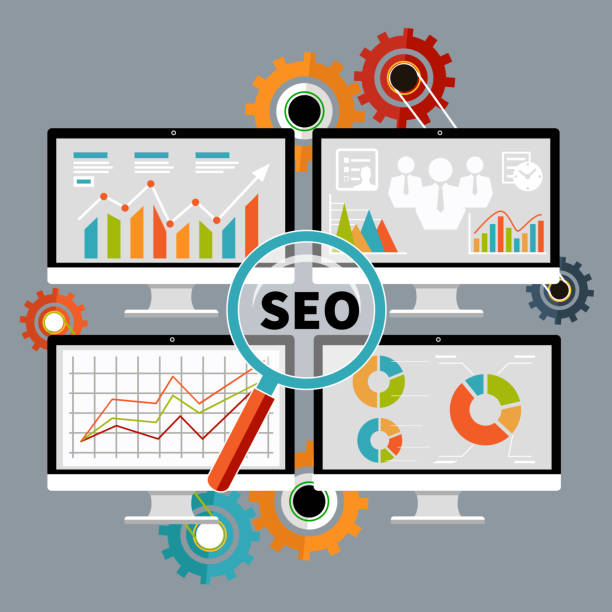
To understand deeply and succeed in Off-Page SEO, one must be familiar with its main pillars.
These pillars include backlinks (link building), social signals, and brand mentions, each contributing in some way to strengthening your website’s credibility and visibility.
#Backlinks are, without a doubt, the most important pillar of Off-Page SEO.
Backlinks are essentially links from other websites pointing to your website, acting as a vote of confidence in the eyes of search engines.
The more authoritative and relevant the referring website, the higher the value of that backlink.
Natural and high-quality links from sites with high Domain Authority (DA) and good traffic can significantly boost your ranking.
This includes contextual links embedded within an article’s text, links from reputable directories, and links from guest articles.
The importance of backlinks is such that many SEO professionals consider link building the heart of Off-Page SEO.
The second main pillar is social signals.
These signals include likes, shares, comments, and reposts of your content on social media platforms such as Instagram, Telegram, LinkedIn, and Twitter.
Although social media links are usually nofollow and do not directly pass domain authority, they play a crucial role in increasing content visibility, driving traffic to the website, and ultimately increasing your brand awareness.
Traffic coming to your site from social media can reduce bounce rate and increase dwell time, all of which are positive signals for Google.
Engaging and attractive content can go viral and gain thousands of shares, which in turn boosts your credibility with search engines.
The third pillar is Brand Mentions.
This occurs when your brand or website name is mentioned somewhere on the internet, even without a direct link.
These mentions can be in news articles, blogs, forums, or even videos.
Google is increasingly paying attention to these brand mentions and considers them an indicator of a brand’s popularity and credibility.
These mentions show search engines that your brand is well-known in its industry and being talked about.
Tracking brand mentions through tools like Mention or Google Alerts is very important, as it allows you to find new opportunities for link building or audience engagement.
In summary, all these pillars together help create a strong and stable Off-Page SEO profile, which is essential for long-term success in search results.
Intelligent use of these pillars will smooth your path in SEO competition.
How is Comprehensive Link Building in Off-Page SEO?

Link building is, without a doubt, the most crucial and complex component of Off-Page SEO.
In this specialized section, we discuss types of backlinks, the difference between their quality and quantity, and how to create valuable links.
#Link_Building_Backlinks refers to getting links from other sites to your site.
But not all links are equal.
A quality backlink comes from a reputable site, relevant to your field, and with high Domain Authority.
These links are highly valuable and signal to Google that your site has valuable content and is trustworthy.
Conversely, low-quality or spammy links, which come from irrelevant sites, with high spam scores or from link farms, are not only worthless but can also harm your site’s ranking and even lead to Google penalties.
Types of backlinks include editorial backlinks, directory links, forum and comment links, and guest blog links.
Editorial links, which are naturally placed within the text of other websites’ articles, are considered the most valuable type.
These links are often created due to the credibility of your content or as a reference to a specific source.
To obtain these links, creating unique and citable content (linkable assets) is essential.
Link building from directories can be useful, but you must choose specialized and reputable directories.
Links from forums and blog comment sections also need to be done carefully and naturally to avoid being considered spam.
Quality is preferred over quantity.
Instead of trying to get hundreds of low-quality links, focus on acquiring ten very high-quality links.
Google has complex algorithms to distinguish natural links from manipulated ones.
Therefore, building a natural and diverse link profile is very important.
For this purpose, you should continuously improve your content, connect with other webmasters, and identify new link-building opportunities.
Regular monitoring of your backlink profile through tools like Ahrefs or SEMrush is crucial for identifying toxic links and disavowing them.
This specialized section of Off-Page SEO requires deep knowledge and immense patience.
| Backlink Type | Description | Impact on Off-Page SEO |
|---|---|---|
| Editorial Links | Links naturally placed within the content of an article or blog post. | High (Very Valuable) |
| Guest Post Links | Links obtained by writing articles for other sites and including a link to your own site. | Medium to High (with quality) |
| Directory Links | Links obtained by submitting your site to web directories. | Low to Medium (depending on directory credibility) |
| Forum and Comment Links | Links placed in forum signatures or blog comment sections. | Very Low (dangerous if spammy) |
Effective Link Building Strategies in Off-Page SEO

After understanding the importance of backlinks, it’s time to learn about practical strategies for obtaining them.
This section provides guidance on how to effectively improve your site’s Off-Page SEO.
#Link_Building_Strategies are diverse, and choosing the best one depends on your business type, available resources, and goals.
One of the most powerful methods is Guest Blogging.
In this method, you create content for other websites in your business’s relevant field and, in return, receive a link to your site.
The key to guest blogging is choosing sites that are both reputable and share a common audience with you, to ensure the received link has maximum value.
This method not only helps with link building but also increases brand awareness and drives referral traffic.
Another method is Broken Link Building.
In this strategy, you look for broken links on authoritative sites.
Then, you contact the site’s administrator and, in addition to informing them about the broken link, suggest replacing that broken link with your similar and updated content.
This is a win-win situation; the site administrator fixes their broken link, and you get a quality backlink.
This is a smart and ethical strategy to boost your Off-Page SEO power.
Identifying these links requires tools like Ahrefs Site Explorer or browser extensions.
The Resource Pages strategy is also very effective.
Many websites have pages where they list useful resources on a specific topic.
If your content is good enough to be used as a valuable resource, you can contact the administrators of these pages and ask them to add your site’s link to their resource list.
Your content must be truly unique and valuable for this request to be successful.
Producing Linkable Assets such as infographics, case studies, comprehensive research reports, and free tools is also an important part of link-building strategies.
This type of content naturally attracts webmasters’ attention and increases the chance of receiving natural links.
Finally, participating in specialized forums, relevant social media groups, and Q&A platforms (like Stack Overflow or Quora) can also be used as a supplementary strategy.
On these platforms, you can answer users’ questions and, if possible and relevant, provide a link to your site’s related content.
However, you must be careful not to appear spammy and to provide real value to the user.
Implementing these strategies requires patience, continuous effort, and creativity to achieve desired results in Off-Page SEO.
Are you worried about losing customers because you don’t have a professional e-commerce site?
With e-commerce website design by Rasawab, forget these worries!
✅ Significant increase in sales and visitor-to-customer conversion rate
✅ Professional and user-friendly design that builds customer trust
⚡ Get free website design consultation from Rasawab
Beyond Backlinks: Influential Factors in Off-Page SEO
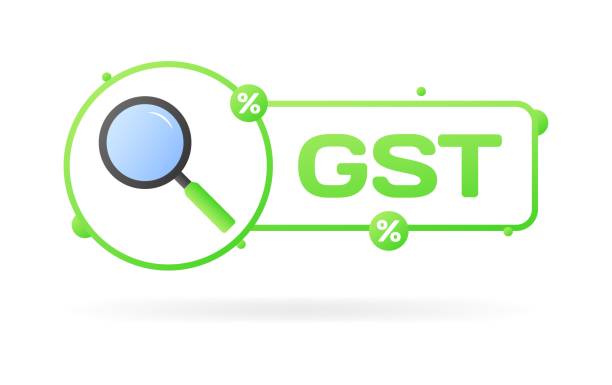
While backlinks play a central role in Off-Page SEO, success in this area is not limited to them alone.
Other factors also indirectly but effectively influence your site’s credibility and visibility.
#Beyond_Backlinks encompasses a broader concept of Off-Page SEO, including Brand Building, a strong presence on social media, and influencer marketing.
Branding means creating a strong and unique identity for your business that not only distinguishes you from competitors but also increases user and search engine trust in you.
When you are a recognized and trusted brand, people are more inclined to link to you and mention your name.
This naturally helps improve your Off-Page SEO.
An active and strategic presence on social media is also highly important.
As previously mentioned, although social signals do not directly change rankings, they indirectly influence them.
Continuous activity, publishing valuable and engaging content, and interacting with audiences on platforms like Instagram, LinkedIn, Twitter, and YouTube can lead to an increase in referral traffic to your site.
This traffic, if accompanied by a positive user experience, can send positive signals to Google, such as reduced bounce rate and increased dwell time.
Engaging and thought-provoking content that encourages users to discuss and share can quickly go viral and boost your brand’s credibility.
Influencer Marketing is another important aspect of Off-Page SEO.
Collaborating with influencers relevant to your industry can help increase brand visibility, attract targeted traffic, and ultimately lead to natural links.
When a reputable influencer mentions or shares your content, it not only increases your credibility but can also lead to natural link building.
Influencers have loyal audiences who trust their recommendations, so a mention from them can be very powerful.
This analytical approach shows us that Off-Page SEO is not just a link game, but a broader strategy that includes building online credibility and popularity.
By focusing on these factors, you can build a powerful digital ecosystem that consistently helps improve your search engine rankings.
The Role of Content in Building Strong Off-Page SEO

Content is king; this statement holds true not only in On-Page SEO but also in Off-Page SEO.
Producing valuable and high-quality content is the cornerstone of a successful Off-Page SEO strategy, as good content naturally attracts links and makes it easier to share.
#Quality_Content is what other webmasters and users are willing to link to and share with others.
This type of content can include comprehensive and educational articles, unique research reports, engaging infographics, instructional videos, free tools, or in-depth case studies.
The goal of producing such content is to become an authoritative source in your industry.
When you are a reliable source, others naturally link to your site for information or data.
An educational and explanatory content that answers common user questions or solves a specific problem has high potential for attracting links.
For example, if you write a comprehensive guide on “How to Set Up Google Advertising Campaigns,” other bloggers and experts will likely refer to this resource.
Additionally, entertaining and creative content can also play a significant role in attracting links and social signals.
An engaging video, an interactive survey, or an online contest related to your brand can quickly spread across social networks and drive a lot of traffic to your site.
This traffic, in turn, sends signals to search engines about your site’s popularity and relevance.
Content promotion is as important as its production.
After publishing great content, you should actively promote it.
This includes sharing on social media, sending to your newsletter email list, connecting with influencers and webmasters in the relevant field, and even paying to promote that content.
The more people who see your content, the more likely they are to link to it or share it.
Finally, you should continuously update and improve your content.
Outdated content can lose its value.
By regularly updating, you not only maintain the freshness of your content but also show search engines that your site is active and rich in content.
This integrated approach to content is at the heart of any successful Off-Page SEO strategy, and without it, your link-building efforts will never reach their full potential.
Key Tools and Metrics in Off-Page SEO

For any successful Off-Page SEO strategy, using the right tools and continuously monitoring metrics is essential.
This specialized section helps you become familiar with commonly used tools and important metrics for monitoring and improving Off-Page SEO.
#Off_Page_SEO_Tools allow us to analyze our and competitors’ backlink profiles, identify new link-building opportunities, and assess the overall health of the site’s link profile.
One of the most powerful tools in this area is Ahrefs.
Ahrefs has a massive database of backlinks and allows you to analyze any website, view its backlinks, discover competitor keywords, and find guest posting opportunities.
This tool is unparalleled for competitor analysis and uncovering their link-building strategies.
SEMrush is another comprehensive tool that offers similar capabilities to Ahrefs.
In addition to backlink analysis, SEMrush is very powerful in keyword research, traffic analysis, and position tracking.
Moz Pro, with metrics like Domain Authority (DA) and Page Authority (PA), is also an important resource for evaluating the strength of links and web pages.
These metrics help you gauge the quality of the links you acquire and focus on building links from sites with high DA.
Google Search Console is also a free and essential tool from Google itself that provides valuable information about incoming backlinks to your site, internal links, and any messages regarding potential penalties.
This tool is crucial for any webmaster who cares about their Off-Page SEO.
Key metrics that should be continuously monitored include: the number of backlinks and referring domains, the quality of links (DA/PA of referring sites), the Anchor Texts used, the link growth rate, and the rate of toxic links.
Natural link growth and diversity in anchor texts (using various keywords, brand names, and raw URLs) are very important to avoid Google’s algorithms.
Regular monitoring of these metrics helps you quickly identify potential problems and adjust your Off-Page SEO strategy based on data.
This analytical approach ensures that your efforts are in the right direction and towards continuous improvement of Off-Page SEO.
| Tool Name | Primary Application in Off-Page SEO | Key Features |
|---|---|---|
| Ahrefs | Comprehensive analysis of competitor backlinks and link-building opportunities | Site Explorer, Content Explorer, Keywords Explorer |
| SEMrush | Competitor analysis, backlinks, and keyword research | Backlink Audit Tool, Organic Research, Keyword Magic Tool |
| Moz Pro | Domain and Page Authority (DA/PA) evaluation, rank tracking | Link Explorer, Keyword Explorer, Site Crawl |
| Google Search Console | Incoming backlink reports, crawl and index issues | Links Report, Coverage Report, Performance Report |
Common Mistakes in Off-Page SEO and How to Prevent Them
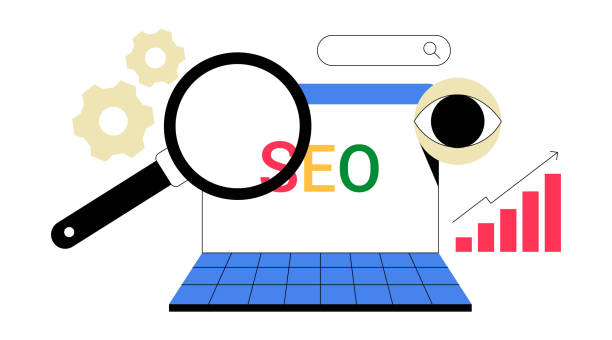
While Off-Page SEO can be very powerful, if not executed correctly, it can lead to serious damage to a site’s ranking.
Awareness of common mistakes and how to avoid them is an important part of your SEO strategy.
#Off_Page_SEO_Mistakes include using Black Hat SEO techniques, buying links, and ignoring link profile diversity.
One of the biggest mistakes is using Black Hat techniques.
These techniques, such as keyword stuffing, cloaking, or link building from PBNs (Private Blog Networks), may yield good results in the short term, but they are quickly detected by Google’s algorithms and lead to severe penalties (Manual Penalties) or even site removal from search results.
You should always adhere to White Hat SEO techniques, which are based on real value and natural link acquisition.
Buying links is another fatal mistake.
Google explicitly prohibits buying and selling links and considers it an attempt to manipulate search results.
Although some websites may secretly engage in this, the risk is very high and can severely damage your site’s credibility.
Instead of buying links, focus on building relationships and producing valuable content that naturally attracts links.
Ignoring Anchor Text Diversity is also a common error.
If all incoming links to your site use a specific keyword as anchor text, this can appear unnatural to Google and send a signal of manipulation.
Use diverse anchor texts that include brand names, raw URLs, generic phrases (like “click here”), and various keywords related to your content.
Also, building links too quickly can appear suspicious.
A natural link profile grows gradually over time.
If your site gains a large number of backlinks in a short period, especially if it’s a new site, Google might consider it an unnatural activity.
The link growth rate should be logical and sustainable.
Not regularly monitoring your backlink profile is also a mistake.
You should regularly review your incoming links to identify toxic or spammy links and disavow them through Google’s Disavow Tool.
This guiding approach helps you prevent ranking drops caused by common Off-Page SEO mistakes and build a healthy and sustainable link profile.
Are you falling behind in competition with large online stores?
Rasawab, with professional e-commerce website design, brings your business online and increases your market share!
✅ Increase brand credibility and customer trust
✅ Easy shopping experience leading to more sales
⚡ Act now for free website design consultation from Rasawab
The Future of Off-Page SEO and Emerging Trends

The world of SEO is constantly evolving, and Off-Page SEO is no exception.
To maintain a competitive edge, one must be aware of emerging trends and adjust strategies accordingly.
#The_Future_of_Off_Page_SEO will focus more on quality, genuine authority, and user experience rather than just link quantity.
One of the most important emerging trends is the impact of User Experience (UX) on SEO.
Google is increasingly valuing user interaction signals such as dwell time, bounce rate, and click-through rate (CTR).
This means that even if you have a strong backlink to your site, if users quickly leave your site after entering, the value of that link for Google decreases.
Therefore, improving your site’s user experience indirectly impacts Off-Page SEO.
Another trend is the increasing importance of Unlinked Mentions.
As previously mentioned, Google is increasingly tracking brand names even without a direct link and considering them as an indicator of credibility and popularity.
This means that Digital PR strategies focusing on building brand awareness and mentioning your name in the media are becoming more important than ever.
This news-oriented approach helps you have a broader view of Off-Page SEO.
The rise of Artificial Intelligence (AI) and Machine Learning in Google’s algorithms means a more sophisticated and accurate detection of natural versus manipulated links.
Algorithms like RankBrain and BERT enable Google to better understand content and its relevance to search queries.
This also impacts Off-Page SEO, as Google can better determine whether a link truly has content value or was merely created to manipulate rankings.
Therefore, focusing on ethical and value-based link building becomes even more critical.
Online Community Building is another important trend.
Active participation in forums, specialized groups, and Q&A platforms (like Reddit) can not only help generate direct traffic but also naturally lead to building credibility and link-building opportunities.
The future of Off-Page SEO is no longer just about “link building” but about “earning links” through genuine value creation, brand credibility, and meaningful interactions.
This analytical approach shows that success in Off-Page SEO requires a comprehensive and dynamic strategy that keeps pace with changes in Google’s algorithms.
Off-Page SEO and Its Integration with a Comprehensive SEO Strategy
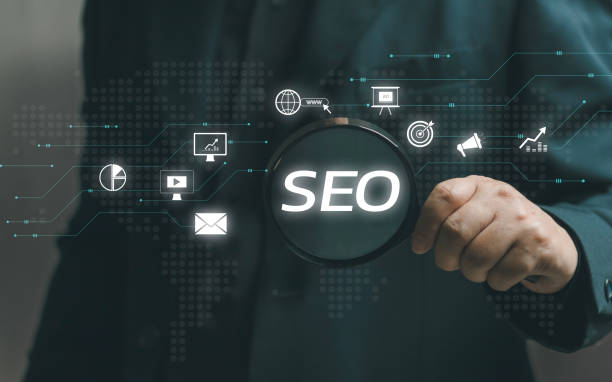
To achieve maximum potential in search results, Off-Page SEO should not be viewed as a separate entity, but rather integrated seamlessly with other parts of the overall SEO strategy, including On-Page SEO and Technical SEO.
#Integrating_Off_Page_SEO_with_On_Page_and_Technical_SEO is key to sustained success.
A website with a weak technical structure, slow loading speed, or low-quality content, even with a large number of high-quality backlinks, cannot achieve top rankings.
On-Page SEO involves optimizing content, keywords, titles, meta descriptions, and URL structure.
If your content is not optimized for target keywords, even if you receive powerful backlinks, you might not rank in search results for those keywords.
External link building should reinforce internal content that is already optimized for relevant keywords.
This synergy ensures that the power of backlinks is utilized in the best possible way to improve rankings.
Technical SEO deals with the technical aspects of your website, such as site speed, crawlability, indexability, and mobile compatibility.
If a site has technical issues, search engines may not be able to properly crawl and index its content.
In such a case, the value of external links will not be fully transferred.
For example, if your page loading speed is slow, users will leave the site before viewing the content, which indirectly negatively affects Off-Page SEO, as poor user signals are sent to Google.
Therefore, a comprehensive SEO strategy requires coordination among these three main pillars.
First, you need to ensure that your site’s On-Page and Technical SEO are in optimal condition, then add credibility and power with a strong Off-Page SEO strategy.
This explanatory and analytical approach provides a sustainable path to growth in search results.
Coordination between these three sections not only helps improve rankings but also enhances user experience, reduces bounce rate, and increases conversion rate.
Ultimately, successful Off-Page SEO, without a strong foundation in On-Page and Technical SEO, is like building a house on water.
Frequently Asked Questions
| Row | Question | Answer |
|---|---|---|
| 1 | What is Off-Page SEO? | Off-Page SEO refers to actions taken outside your website to improve its ranking in search engines. These actions include building backlinks, social media presence, branding, etc. |
| 2 | Why is Off-Page SEO highly important? | Off-Page SEO signals to search engines that your website is credible, popular, and trustworthy. High-quality backlinks from reputable sites are strong signals for better ranking and help increase your domain authority. |
| 3 | What are the most important components of Off-Page SEO? | The most important components of Off-Page SEO are: Link Building, Content Marketing, Social Media Marketing, Influencer Marketing, and Online Reputation Management. |
| 4 | What is a backlink and why is it important for Off-Page SEO? | A backlink is a link from another website pointing to your website. These links act as “votes of confidence” in Google’s eyes and indicate the credibility of your content. The more and higher quality backlinks you have, the better your site’s ranking will be. |
| 5 | What are the types of backlinks in terms of SEO impact? | Two main types of backlinks include DoFollow and NoFollow. DoFollow backlinks pass authority (Link Juice) and directly impact ranking. NoFollows do not pass authority but can still generate traffic and help make the link profile appear natural. (Also UGC and Sponsored) |
| 6 | How can I create high-quality backlinks for my site? | To build high-quality backlinks, you can use methods such as: producing excellent and shareable content, Guest Posting on relevant and authoritative sites, Broken Link Building, Digital PR, and analyzing competitor backlinks. |
| 7 | What are toxic backlinks and how do they affect a site? | Toxic or spammy backlinks are links that point to your site from low-quality, spammy, or irrelevant websites. These backlinks can harm your site’s ranking and even lead to penalties by Google’s algorithms. |
| 8 | What is the role of social media in Off-Page SEO? | Although social signals (likes, shares, etc.) are not direct ranking factors, they contribute to Off-Page SEO. They increase content visibility, drive direct traffic to the site, and ultimately increase the chance of acquiring natural backlinks and improving brand recognition. |
| 9 | What is the importance of diversity in a backlink profile? | Diversity in a backlink profile means that your links come from various sources (blogs, forums, news sites, directories), with diverse anchor texts, and with a mix of DoFollow and NoFollow links. This diversity signals to Google that your link building is natural and organic. |
| 10 | What are common Off-Page SEO mistakes to avoid? | Common mistakes include: buying a large volume of low-quality backlinks, over-optimization with target keywords in link building, ignoring quality for quantity in backlink building, lack of diversity in the link profile, and neglecting toxic backlinks and not disavowing them. |
And other services of RasaWeb Advertising Agency in the field of advertising
Smart Sales Automation: An effective tool to increase sales with the help of Google Ads management.
Smart Conversion Rate Optimization: Designed for businesses seeking online growth through custom programming.
Smart Digital Branding: A combination of creativity and technology to improve SEO ranking through attractive UI design.
Smart Data Analysis: An innovative platform for improving campaign management using real data.
Smart Sales Automation: A combination of creativity and technology to improve SEO ranking through SEO-driven content strategy.
And over hundreds of other services in internet advertising, advertising consultation, and organizational solutions
Internet Advertising | Advertising Strategy | Advertorials
References
Advanced Off-Page SEO Training
Practical Solutions for SEO Ranking Improvement
Off-Page SEO Fundamentals for Ranking Improvement
New Techniques for SEO Ranking Improvement
? For a leap forward in your business, Rasaweb Aftarin Digital Marketing Agency, with expertise in corporate website design and providing comprehensive strategies, stands by you for a powerful online presence.
📍 Tehran, Mirdamad Street, next to Bank Markazi, Kazerun Jonubi Alley, Ramin Alley, No. 6




